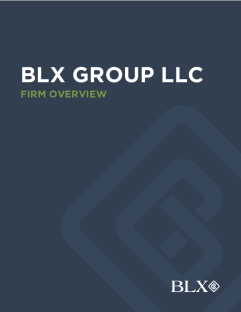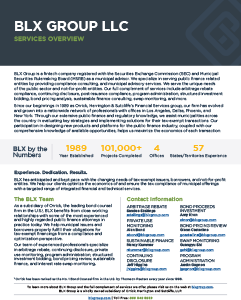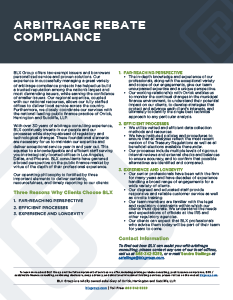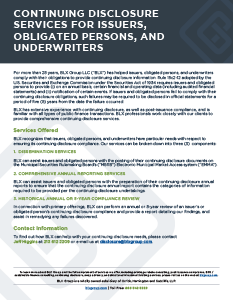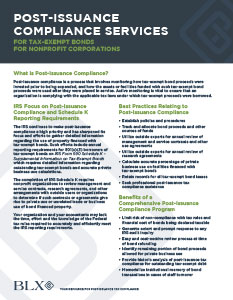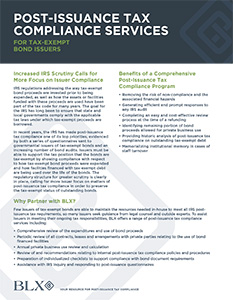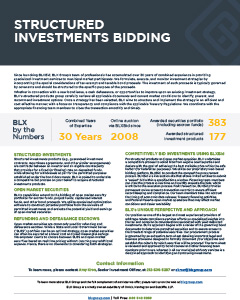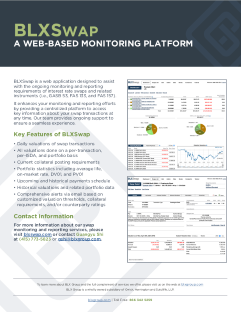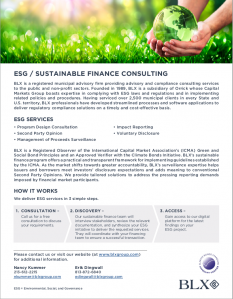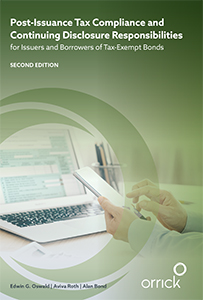
Final Agenda
BLX | Orrick Post-Issuance Compliance Workshop
November 14-15, 2019 – The LINE Hotel, Austin
(Updated October 17, 2019)
THURSDAY – NOVEMBER 14th
Session I – POST-ISSUANCE TAX COMPLIANCE BEST PRACTICES
Post-issuance tax compliance continues to be a focus of the IRS. Developing a program founded on best practices related to policies and procedures, private business use (“PBU”), arbitrage rebate, and other areas will equip organizations with the tools to withstand IRS scrutiny in this area. This session will review the components of an effective post-issuance tax compliance program and discuss the benefits of such a program. In addition, this session will include a discussion of the items that should be included in written post-issuance tax compliance policies, the evolving expectations of the IRS with respect to such policies, and what organizations should be doing to update and modify policies that they have previously adopted. This session will provide participants with an introduction and basis for the detailed topics to be addressed later at the Workshop.
Panelists: Alan Bond, BLX; Richard Chirls, Orrick
40 minutes
Session II – PRIVATE BUSINESS USE – IRS RULES, REGULATIONS AND EXCEPTIONS
The federal tax rules and regulations relating to PBU are complicated and can be difficult to understand. Complying with these rules relating to tax-exempt debt is critical to ensuring that the tax-exempt status of such debt is not compromised. This session will provide a thorough review of the federal tax rules and tax-exempt bond regulations relating to PBU (and Unrelated Trade or Business Use for nonprofits). In addition, this session will review the available exceptions to PBU, including short-term use and incidental use. Understanding the relevant PBU restrictions and applicable exceptions will allow issuers and borrowers of tax-exempt bonds to make sound and prudent decisions about the activities occurring in their tax-exempt bond financed facilities. In today’s economic environment, this information is increasingly important as organizations and issuers seek to maximize revenue generating activities in tax-exempt bond financed space.
Panelists: Alan Bond, BLX; Ed Oswald, Orrick
80 minutes
Session III – MANAGING SPONSORED RESEARCH IN TAX-EXEMPT FACILITIES
In connection with sponsored scientific research, certain arrangements may give rise to PBU depending on how rights to use intellectual property resulting from the research are managed. This session will discuss the difference between basic and applied research and the IRS safe harbor rules regarding sponsored research as provided in Rev Proc 2007-47. As the trend continues for organizations to undertake more sponsored research, participants will be better equipped to make decisions regarding the use of their bond financed facilities in sponsored research endeavors and to structure agreements to be safe harbor compliant.
Panelists: Ed Oswald, Orrick; Larry Sobel, Orrick
45 minutes
Session IV – ADDRESSING MANAGEMENT AND SERVICE CONTRACTS IN TAX-EXEMPT FACILITIES
Management contracts and other use agreements with outside parties may give rise to PBU if occurring in bond financed facilities. The IRS has provided guidance in the form of Rev Proc 2017-13 with respect to safe harbor requirements for contracts for services performed in tax-exempt bond-financed facilities. While this revenue procedure is generally helpful, issuers and borrowers will need to carefully navigate these principle-based concepts to help minimize the impact that these contracts have on their PBU percentage. This session will review Rev Proc 2017-13 and how its application will impact the determination of PBU. Specific techniques and guidance for structuring contracts and agreements to be “safe harbor” compliant will also be discussed.
Panelists: Richard Chirls, Orrick; Barbara League, Orrick
60 minutes
Session V – QUANTIFYING PBU AND UTILIZING QUALIFIED EQUITY TO MINIMIZE PBU
Accurate and timely calculation of PBU is an essential element of an effective Post-Issuance Compliance Program. This session will review specific examples of PBU and examine the methods and steps for calculating PBU. The discussion will include examples of the calculation of PBU of bond financed facilities involving typical problem areas such as: central utility plants, sponsored research activities, management contracts and leases, summer use of facilities, and physician group contracts. This session will also discuss how funding a portion of a project with “qualified equity” will impact the calculation of PBU and how PBU is carried forward in a refunding transaction. This session will allow participants to gain a better understanding of the impact of various types of activities or uses on the overall allowable PBU limitation within a single tax-exempt bond issue and provide participants with information on properly applying and maximizing the benefit of floating equity.
Panelists: Caleb Lansky, BLX; Ed Oswald, Orrick; Larry Sobel, Orrick
75 minutes
Session VI – SECONDARY MARKET DISCLOSURE AND SEC RULE 15c2-12 AMENDMENT
This session will provide an overview of recent events relating to SEC Rule 15c2-12, including the recent settlements by underwriters and issuers resulting from the Municipal Continuing Disclosure Cooperation Initiative (“MCDC”), what issuers and underwriters can learn from such SEC actions. This session will equip participants with information to better comply with their ongoing continuing disclosure requirements in a post-MCDC environment.
Panelists: Robyn Helmlinger, Orrick; Jeff Higgins, BLX
75 minutes
Session VII – IRS AUDIT PREPAREDNESS
The Tax Exempt and Government Entities (TE/GE) division at the IRS has an active enforcement process relating to tax-exempt bonds, with the focus changing on a yearly basis. In addition, recent bond audits confirm that the IRS is actively monitoring Schedule K responses. This session will provide an update on the TE/GE priorities for FY 2019 and recent IRS tax-exempt bond audit activity. Orrick has extensive experience with respect to tax-exempt bond audits and will provide guidance on what issuers and borrowers should be aware of when responding to an IRS audit.
Panelists: Richard Chirls, Orrick; Sandee Stallings, BLX
30 minutes
CONCURRENT BREAKOUT SESSIONS
Session VIII.A – [501(c)(3) Organizations Track]
2018 IRS SCHEDULE K REVIEW
This session will provide a review of the 2018 IRS Schedule K with commentary on the information being requested on the form and on specific calculations required by nonprofit borrowers with respect to their outstanding tax-exempt bonds. The panel will also discuss the relationship of certain questions on the form that may not be obvious to some and provide guidance with respect to answering specific questions. This session will allow 501(c)(3) organizations to more fully understand the information being provided to the IRS on an annual basis and why the information being requested is important to the IRS.
Panelists: Caleb Lansky, BLX; Aviva Roth, Orrick
45 minutes
Session VIII.B – [Governmental Issuer and Public Entities Track]
OPEN FORUM AND HOT TOPICS
This roundtable discussion will cover areas of post-issuance compliance unique to governmental bond issuers. This session will allow participants to raise and discuss issues they are observing day-to-day and share ideas and concerns with fellow finance professionals. Orrick and BLX participants will share their views and insights on the topics discussed.
Panelists: Alan Bond, BLX; Todd Brewer, Orrick; Ed Oswald, Orrick; Larry Sobel, Orrick
45 minutes
FRIDAY – NOVEMBER 15th
Session IX – BORROWER PERSPECTIVE – OUR POST-ISSUANCE COMPLIANCE PROGRAM
This session will highlight the post-issuance tax compliance programs of two different institutions. Borrower panelists will discuss the effort expended to position themselves to be prepared to respond with respect to IRS compliance reporting requirements and how their focus has shifted over time. In addition, they will discuss how their organization manages PBU in their tax-exempt bond financed facilities. Their stories can serve as a valuable resource to other organizations facing similar tax compliance burdens.
Panelists: Alan Bond, BLX; Stephen Gilmore, Ascension Health Alliance; John Kotwicki, Georgetown University
45 minutes
Session X – GUIDE FOR LIBOR TRANSITION
LIBOR is a widely used index to determine interest rates in the tax-exempt bond market. A number of issuers and borrowers have LIBOR based floating rate notes, direct purchases and swap agreements. It has been announced that LIBOR will no longer be determined after 2021 and SOFR has been identified as an alternative index for LIBOR. This panel will review the risks related to the LIBOR transition and what actions issuers and borrowers with bonds or swap agreements using LIBOR should take to prepare for the change in LIBOR.
Panelists: Barbara League, Orrick; Jenna Magan, Orrick, Eileen Solla-Diaz, TD Securities
45 minutes
Session XI -INVESTMENT OPPORTUNITIES AND MARKET UPDATE
This session will cover the investment options and current market conditions relating to tax-exempt bonds. The discussion will focus on the best practices for investing escrow funds as well as delve into different potential investments for Reserve, Project and Debt Service Funds. We will examine the available products, providers and how to navigate the “safe harbor” for investment bidding provided by the IRS.
Panelists: Amy Kron, BLX; Larry Sobel, Orrick; Tom Tight, PTA
45 minutes
Session XII – MANAGING ARBITRAGE COMPLIANCE
Make sure that your organization understands the requirements, is adequately documenting compliance, and is aware of potential rebate payments given the current interest rate environment. This session will review the arbitrage rebate and yield restriction requirements relating to tax-exempt bonds. Topics to be discussed include Federal reporting and filing requirements, contrasting the rebate and yield restriction requirements, and developing a compliance plan that includes making timely payments, document retention and compliance substantiation. This session will equip participants with the knowledge to better understand the complex arbitrage rebate regulations and provide participants with the tools to effectively manage compliance.
Panelists: Glenn Casterline, BLX; Barbara League, Orrick; Sandee Stallings, BLX
90 minutes
